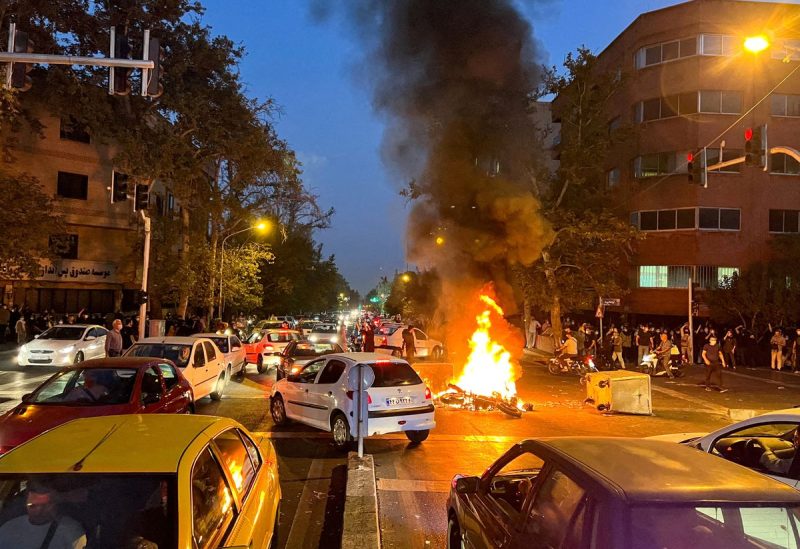
A police motorcycle burns during a protest over the death of Mahsa Amini, a woman who died after being arrested by the Islamic republic's "morality police", in Tehran, Iran September 19, 2022. WANA (West Asia News Agency) via REUTERS
On Tuesday, a U.N.-appointed independent expert on Iran expressed worry over the rising level of protester repression and the government’s “campaign” to execute them.
According to the UN, protests that started after the death of Mahsa Amini, a 22-year-old Kurdish woman, on September 16 while she was being held in detention, have resulted in more than 300 deaths to date and 14,000 arrests.
In response to a UN Human Rights Council vote to launch an investigation into the crackdown last week, Javaid Rehman told Reuters, “I’m scared that the Iranian regime would react brutally to the Human Rights Council resolution and this may spark additional violence and repression on their behalf.”
Already, 21 people arrested in the context of the protests face the death penalty, including a woman indicted on “vague and broadly formulated criminal offences”, and six have been sentenced this month, Rehman said.
The U.N. human rights office confirmed in an email that one of those indicted for “corruption on earth for publication of lies on a large scale” was famous Iranian rapper Toomaj Salehi, citing a judicial official.
Iran has blamed foreign foes and their agents for the unrest. Its judiciary chief last month ordered judges to issue tough sentences for the “main elements of riots”.
Even before the unrest, executions were rising and the U.N. human rights boss Volker Turk has said the number this year had reportedly surpassed 400 by September for the first time in five years.
The U.N. resolution is seen as being among the more strongly-worded in the body’s 16-year history and urges the mission to “collect, consolidate and analyse evidence”.
Past investigations launched by the council have led to war crimes cases, including the jailing of a Syrian ex-officer for state-backed torture in Germany this year.
Rehman said he expected the new Fact-Finding Mission to provide a list of perpetrators and share that with national and regional legal authorities.